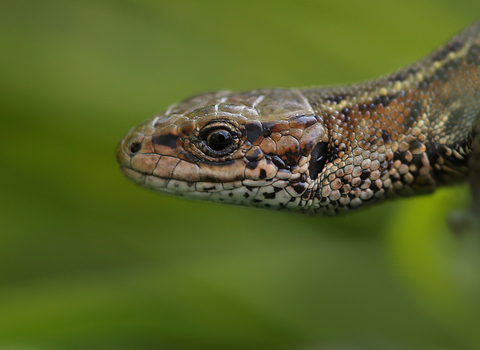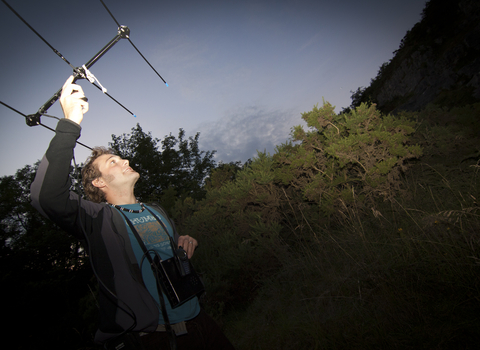SWT Ecology Services provides reptile surveys for private homeowners, developers and multi-disciplinaries, as well as public organisations and landowners in Surrey and across the South East.
About reptile surveys
There are six species of native reptiles in UK. These comprise three species of snakes (adder, grass snake and smooth snake) and three species of lizards (common lizard, sand lizard, slow worm).
The sand lizard and the smooth snake are considered rare species, and as such are more heavily protected.
Adders, distinguished by the zig-zag pattern on their back, are the only venomous species of native reptile in the UK, while grass snakes are the only species of native reptile to lay eggs.
Slow worms are legless lizards which often means they are confused for snakes, but like the other lizards they can shed their tail as a defence mechanism.
Legislation
All native reptiles are protected under the Wildlife & Countryside Act 1981 in England and Wales. They are safeguarded as well by The Conservation (Natural Habitats & c.) Regulations 1994, The Countryside & Rights of Way Act 2000 In England and Wales, The Nature Conservation (Scotland) Act 2004, The Environmental Damage (Prevention and Remediation) Regulations 2009 England and Wales and The Natural Environment and Rural Communities Act 2006.
Smooth snakes and sand lizards are European Protected Species, which makes it illegal to capture, kill or injure these species. This also protects both the rare reptiles, their eggs and their habitats from disturbance or destruction, and it is against the law to block access to the animals’ place of shelter or to possess, trade or transport these animals (dead, alive, or parts of them).
In addition, all species of reptiles are legally protected against being killed, injured, traded, or offered up for trade.
Types of survey
Artificial refugia
This type of survey is used to determine presence or likely absence, as well as population estimates. Artificial refugia such as corrugated iron, bitumen or roofing felt are placed in suitable habitats. As these materials warm up quickly while acting as shelters, reptiles will choose to bask underneath these refugia, which makes them easier to find. These refugia are then checked for reptiles.
Should work on a site with reptiles be unavoidable, translocation may have to be undertaken, which requires an element of habitat management on both the donor and a receptor site. A similar survey technique is applied to capture the animals until the site is deemed to be free from reptiles.
Reptile surveys are restricted to their active period (April to September) in addition to being weather dependent, so contacting us as early as possible in the planning of your development will help us to advise and minimise avoidable stoppages in your development programme.
SWT Ecology Services’ pragmatic advice has been much appreciated and their recommendations not onerous for us to fulfil. This has been invaluable for us to deliver our portfolio of projects!McCarthy & Stone


